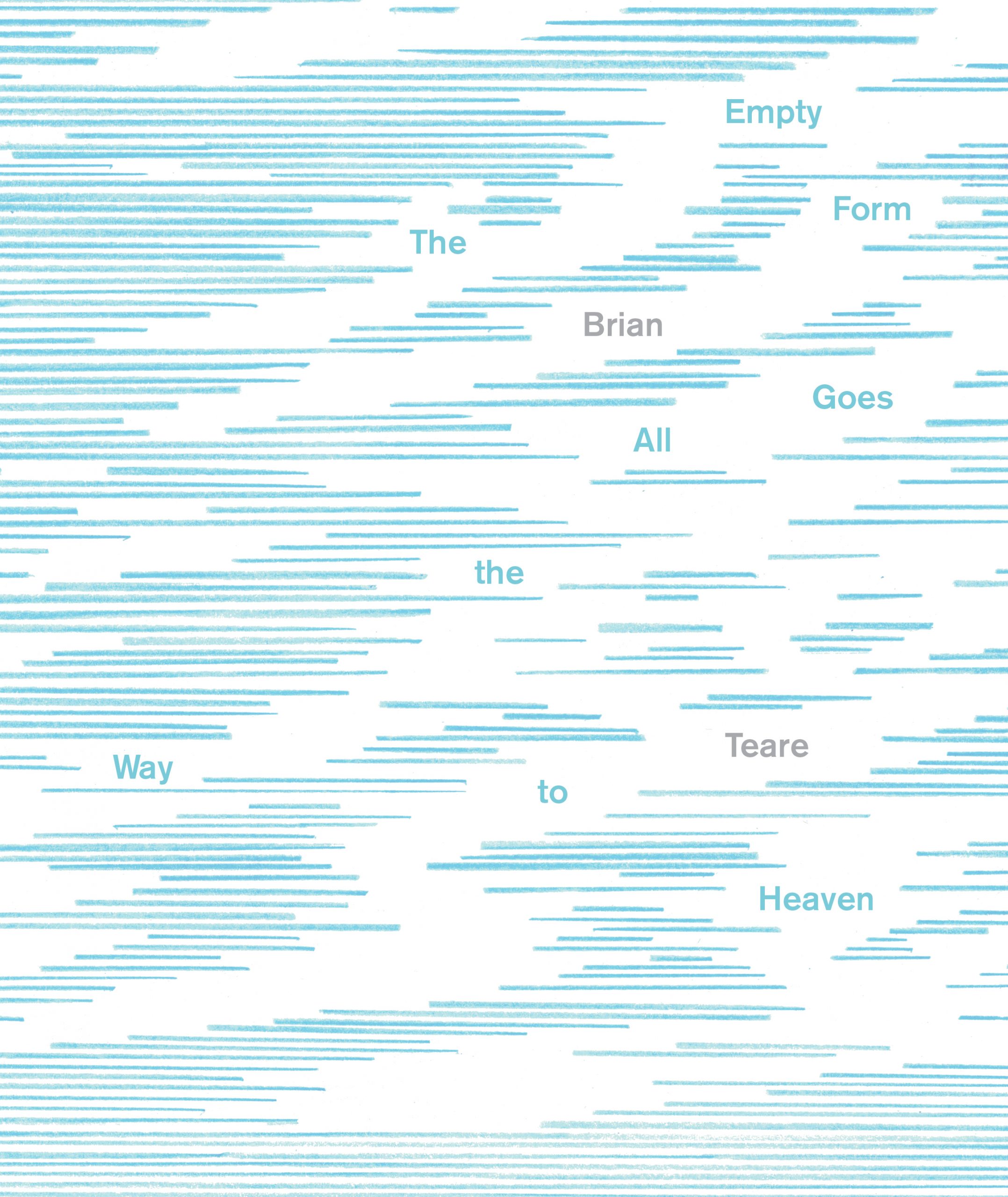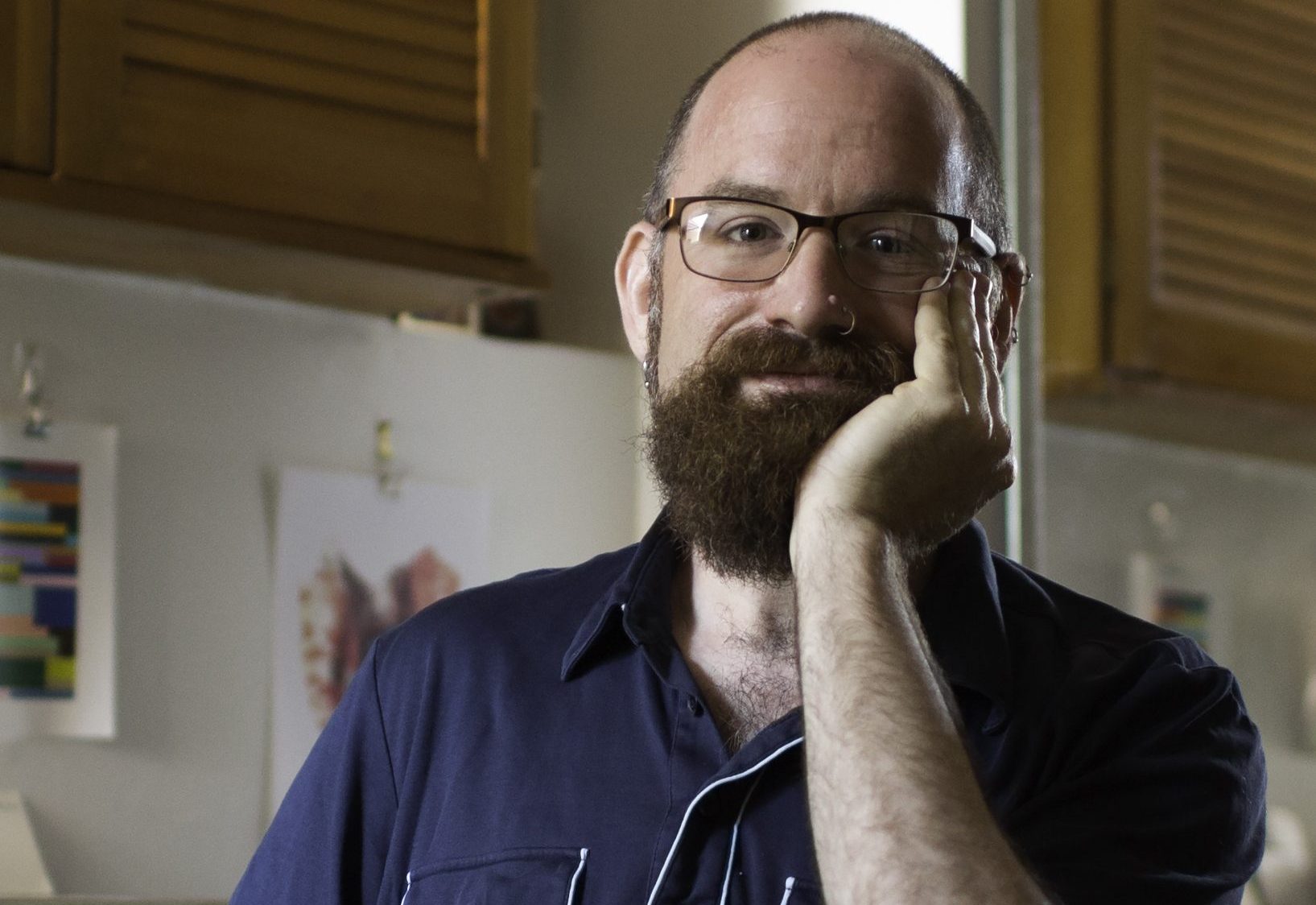Thanks to the tireless work of disability justice activists, as well as an increased attention to chronic conditions that the COVID-19 pandemic necessitates, discussions around disabilities and chronic illness are more present in mainstream culture than at any other time in recent history. Artists, poets, and other writers have also contributed heavily to this awareness, including celebrated Charlottesville-based poet Brian Teare, whose book The Empty Form Goes All the Way to Heaven is a newly reissued examination of his relationships with these topics.
The Empty Form is a gorgeous collection of ekphrastic poetry—that is, poems influenced by works of visual art—drawing inspiration from the writings and grid paintings of Agnes Martin, and exploring Teare’s own experiences of misdiagnoses and chronic illness, as well as the harms perpetrated by the American medical-industrial complex.
Teare began writing the poems in this collection in 2009, while coping with an undiagnosed chronic illness and finding comfort in Martin’s work. He writes in the book’s preface, “These poems set my life in relation to my long encounter with her painting, drawing, writing, and the metaphysics she argued was implicit in them.” With this expanded reissue of the book—now including an interview by Declan Gould that shares Teare’s perspectives on COVID-19, capitalism, and contemporary disability poetics, among other topics—Teare hopes the poems will find a broader audience, reaching “those with chronic conditions and those who are caregiving, those who love Agnes Martin, and those who are simply hungry for poems with an adventurous sense of beauty.”

The poems in this collection are experimental in nature, each creating their own unique grid on the page as words and typographic symbols are positioned to provide visual meaning atop the linguistic, their angles echoing Martin’s best-known paintings—and titled with references to, and quotes from, Martin’s work. Teare asks readers to examine the embodied life, to question ideas of normativity and definitions of healing, and to trouble the divide between sickness and health. “Most readers unconsciously expect texts to be like able bodies—legible, unified, meaningful in predictable ways—and I wanted to frustrate that unconscious expectation in poems about disability,” says Teare in response to Gould. “In the end, I hope the self-consciousness of not knowing how to proceed makes a reader aware that chronic illness and disability frequently demand a long and profound confrontation with not knowing, a confrontation that permanently changes what it means to know.”
This question of legibility is also probed in poems such as “One must see the ideal in one’s own mind. It is like the memory of perfection,” in which Teare writes:
the doctors treat my body only as the site of disorder the way it’s easy to think meaning arises from words as though a body or lyric doesn’t begin outside itself
In part, The Empty Form is a book about the ways in which language can fall short, as Teare also recalls to Gould that “I found undiagnosed illness to be both wordlessly corporeal and hyper-discursive, a paradox the poems often try to enact. For many years, my sense of self was often subsumed by chronic pain, cognitive fog, and other symptoms, and yet, as a patient, I was constantly called upon by Western allopathic medicine to narrate myself … I believed my suffering would end if we could just find the right words to describe my illness.” This sensation is also echoed in the poem, “Any mistake in the scale and it doesn’t work out. It’s pretty hard because it’s such a small picture.,” where Teare writes:
the problem with illness is I think there might be a way to be ill that would free me from suffering the way correctly placed needles calm symptoms
As a poet, Teare has published six critically acclaimed books, including Doomstead Days, winner of the Four Quartets Prize and finalist for both the National Book Critics Circle Award and the Lambda Literary Award. He is also an associate professor at UVA and runs Albion Books, a one-man poetry micropress that specializes in limited-edition chapbooks and broadsides, among other printed matter.
Still a relatively recent transplant to the area, Teare explains that, “During the three years I’ve been in Charlottesville, first Dr. Daniel Becker and Dr. Ben Martin, and then Dr. Martin and Dr. Irène Mathieu have invited me to be in dialogue with members of the medical community about poetry, narrative medicine, and the medical humanities more broadly. After many years of disappointing and alienating experiences as an uninsured and low-income patient, and after many years of writing about chronic illness and medicalization, I found that these dialogues allowed me to do new kinds of thinking and feeling about being a patient and a person with chronic conditions.”
Teare adds, “I hope hearing the poems and being a part of our conversation afterward will also allow local readers a similar opportunity: to think and feel in new ways about poetic language, chronic conditions, and care. I also hope my work gives people permission to write from what I call the non-narrative experience of illness: the ephemeral feeling-states of pain, discomfort, and dysphoria that are intrinsic to chronic conditions, but which are hard to put into words, and even harder for medicine to acknowledge and validate.”






